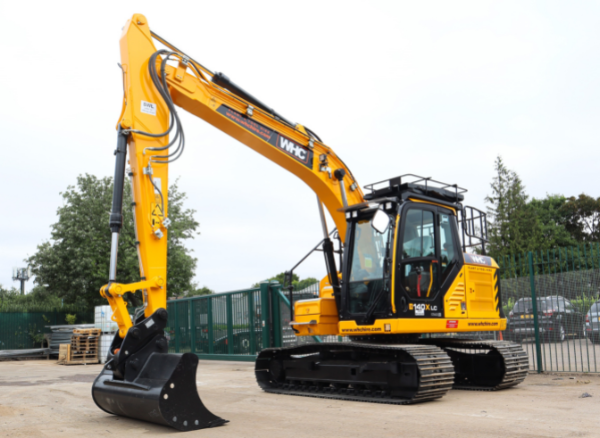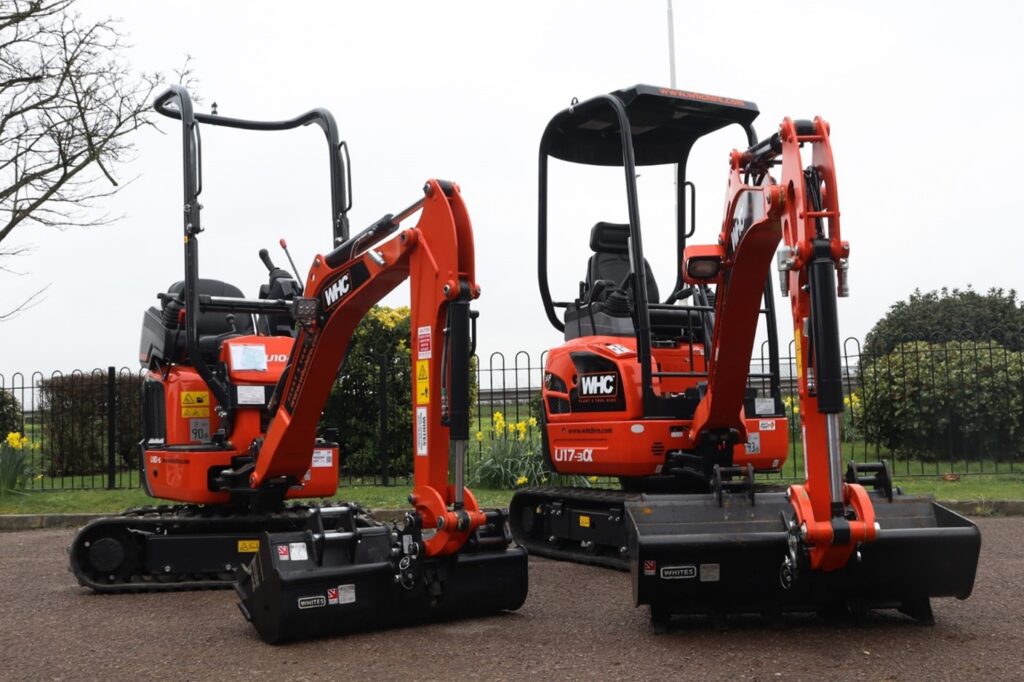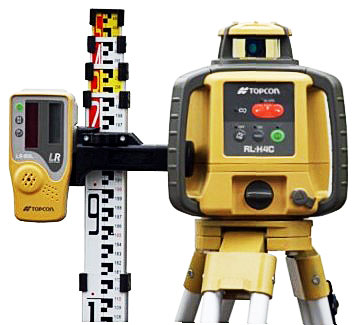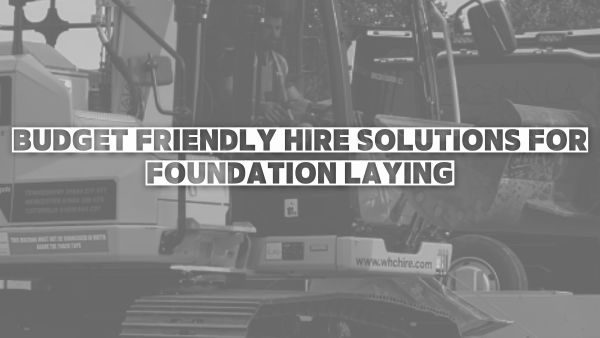Budget-Friendly Hire Solutions For Foundation Laying
The success of any building project depends heavily on the foundation on which it is created. When embarking on a construction project, it is essential to start on the right foot. Managing the foundation stage can be challenging, but we are here to help. This WHC Hire article will share some budget-friendly hire solutions for foundation laying to ensure that you set off on the right foot.
First, let’s address some of the issues you may come across during the foundation stage of a construction project.
Common issues to navigate for foundation laying

There are many common issues that project managers will come across during the foundation stage of a build. It is vital to understand what control factors you have before starting. For example, some of the issues you will come across during these stages, you will have no control over, whereas others you will.
Water-related issues
Water plays a very important part in the construction of quality foundations. Inadequate drainage can lead to water pooling and causing damage over time. Before giving the go-ahead to start digging foundations, you should have sufficient drainage installed beforehand. This could be in the form of soakaways or drainage channels. This is where water can naturally move away from the area you intend to build on. Water-related issues can be controlled to a large degree. However, a massive contributing factor to this is the type of soil you are constructing on.
Geological related issues
One common issue you will certainly be challenged with is the type of soil you will be constructing on. There are 4 common types of soil you will find in the UK. Clay, silt, sand and loam. All of which, have their unique properties and pros and cons when it comes to foundation laying. You should always conduct soil testing to ensure you use the best design and method to establish your foundations.
Materials in
Arranging materials for your site is essential during your planning phase. This will include how you intend to lay your foundations, be it by hand or using equipment. We would highly recommend you dedicate room for deliveries to avoid any delays throughout your project. The quality of the materials you choose is completely within your control. Therefore, it is always best to use what you consider is the best fit for your business.
Timescale
Another common issue that is within your business’s control is the timescale of laying the foundations. While there are a few acts of God that we can’t control, the majority we can. Most project managers will have an agreed finish date which will have some leniency. It is essential for your reputation, to stick to these agreed timescales made with the client.
Weather-related
Quite possibly the only common issue you can not navigate is the British weather. However, choosing drier months between May and October to lay foundations could be better suited. However, as we all know, the construction industry operates every week of the year. Therefore, sometimes we have to be prepared for some small setbacks.
Equipment availability
Hiring equipment can be integral to the success of the construction of your foundations. Choosing who you hire your machinery from is completely within your control. Ensure you know that the provider you use can deliver to the timescales you require. Delays in equipment acquisition and service support can be detrimental. It is always best to work with a business that offers flexible management solutions to suit your needs.
Subcontractors
Our last common issue to navigate, is not one that everyone uses, however is worth noting. Throughout larger operations, some project managers will use sub-contractors to help meet deadlines. Especially within the early stages. The right sub-contractors can be a crucial asset to the timescales of a project. However, finding the right ones can take some time. Make sure before subcontracting any work, you vet the prospects out fully.
So now that we have highlighted these common issues, let’s take a close look at the types of tasks required during foundation laying.
Types of foundation laying tasks and hire solutions to suit.
During the initial process of foundations being laid, there are many different tasks to undertake. Conducting these processes promptly can ensure that you can keep on track with your project. Using task-specific plant machinery can speed up the process. In this section, we will share some budget-friendly hire solutions to suit each one.
Ground breaking

Ground breaking is a traditional ceremony that is held normally on the first day of a new construction project. In this instance, however, we are going to use the term literally. Breaking ground is generally the first earthmoving stage of any construction project. The task requires the movement of the most amount of existing debris from the working area. Commonly large excavators and site dumpers are used for this task.
During your planning stage, you can estimate the time required to complete this task by calculating the volume taken per cycle. The larger the excavator and dumper, the more earth can be moved at one time.
Hiring a large excavator that is suitable for your ground breaking project can boost your overall efficiency. One of the most common sized large excavators for ground breaking is around 14 Tons. Machines like this are extremely cost-effective as they start at £490.00 VAT per week. Their bucket capacity and lifting properties make them an ideal partner for all types of material you will come across during this task. Even though these are large excavators, they can be quickly delivered as they do not require a movement notice to do so.
Grading and levelling

After breaking ground, grading and levelling are two of the most important phases. This process requires the movement of earth in and around your construction site, to create an agreed gradient. It is vital that this is completed before any foundations are constructed.
Throughout this stage, project managers will be cautious of the accuracy of levels and over-compaction. Therefore, the correct equipment must be used to do so. Reputable hire solution providers will aid in the accuracy of this through specialised equipment. Tools such as laser levels can be easily obtained on hire for as little as £ 60+ VAT per week. An extremely cost-effective solution compared to paying out thousands for one of your own.
In addition, excavator attachments are widely available to aid in generating the correct fall or gradient during this phase. A tilting grading bucket allows more work to be completed from one position, reducing ground compaction and boosting performance. Excavator attachments like these are an ideal asset and can be easily added when necessary.
Drainage installation

Installing drainage for your new construction project is a task you don’t want to get wrong. The process requires the installation of underground piping or trenches to move water away from the new foundations. There are three parts to any type of drainage installation.
Digging the trenches, laying and backfilling. Ultimately the size of your project will determine the amount and size of drainage required for your project. Of which will have already been agreed with your architect or client. This in turn will also determine the type of material your drainage piping is constructed from. Remember that UPVC is lighter than concrete or clay piping, therefore, can directly impact than machinery you use to install it.
Large excavator hire solutions can also be highly beneficial in this circumstance. Ensuring that the equipment you are using is safely suitable for the drainage you are installing is vital. If you have particular requirements, choosing to hire can be a very fast and budget-friendly solution to install new drainage. By working closely with your provider, you can quickly complete this task with the correct equipment without overpaying.
Foundation trench digging

When you think of foundations, digging trenches is probably one of the first tasks you’d pick out. There is no doubt that this task is high on the agenda of all project managers to get right. Getting the foundation right is crucial to the outcome of the build. This process requires the excavation of trenches to an agreed depth and level depending on soil conditions.
However, you can expect to be excavating to at least 1m in depth below the frost line. Ultimately resulting in a large amount of earth being extracted. Therefore, selecting the correct hire solution for this task is essential. You also must ensure your equipment has adequate reach and dig depth for the task. Unsuitable choice of machinery can lead to unwanted delays.
Excavators and site dumpers of all sizes can be used in the process of trench extraction. However, the size of the machinery you opt for will be determined by the space available on site. Small trench digging for housing extensions can be completed by either a micro or mini digger, as their size plays hugely to their advantage. Whereas, for larger construction sites, a large excavator will be more suitable for this type of task.
It is important that if it is your goal to optimise your hire solutions, your excavators are married up with the correct site dumpers. The faster the cycle the more efficient the project.
Pouring concrete

After setting rebar within your trenches (if applicable), then the last stage of laying the foundation laying is pouring concrete. With this being the final stage of the initial foundation, all project managers know there is no room for error here. To help, there are a few factors that you can address to boost the productivity and accuracy of the build.
Firstly, is the pouring of concrete. There are many methods of pouring concrete. However, to boost efficiency, especially when time or weather could be against you. Ensuring your footings get filled in a timely fashion is essential. The most common solution for this is to have your concrete pumped via a delivery vehicle. Nevertheless, not all budgets account for having this service. Therefore, you may want to explore cheaper alternatives.
The largest variant for this stage of foundation laying is the distance between the lorry and the footings. Speeding the journey between the two points will overall boost your productivity. If you haven’t got the budget for pumping, your next best alternative is using a site dumper. A site dumper can easily be filled to transport large amounts of concrete at a time. As well as being very accurate when unloading into the trench. Some hire solution providers also offer swivel skip-style machines to reduce the amount of turning required when the machine is fully loaded.
It is important to remind staff when choosing to hire a site dumper for this task, that it is thoroughly cleaned after each use. Failure to do so could incur cleaning or damage charges. Nevertheless, this hire solution option can drastically increase your project speed and reduce manual labour.
Budget-friendly hire solutions for foundation laying
Foundation construction requires a huge amount of muscle to complete, however, to help, you may wish to adopt some of these budget-friendly hire solutions. These are as follows:
- Large excavator
- Small excavator
- Site Dumper
- Laser levels
Large excavator

A large excavator is ideal for huge amounts of earthmoving. However, it is important to note that it’s not suitable for all. Large excavators require plenty of room to safely operate within. Even though equipment like this is highly desirable, choosing the right size excavator for your project is essential. Nevertheless, these machines start from around £455.00+ VAT per week (9T Excavator) upwards, depending on machine size.
Small Excavator

Small excavators are highly desirable in all types of foundation construction. However, you mustn’t overestimate their capabilities. This can lead to overspending against your proposed budget. We would highly advise to ensure the small excavator you choose has the correct dig depth and handling capabilities to meet your needs. In some cases, site managers can opt for zero-tail swing excavators to enhance productivity in tighter spaces. Machines like this are highly affordable starting from £215.00+VAT per week. (Micro Excavator)
Site Dumper

We’ve talked about them quite a lot already in this article, but site dumpers are truly one of the most versatile, budget-friendly pieces of machinery you can use to help complete your foundation task. With a wide range of sizes to choose from, partnering one of these machines together with an excavator is certainly a “go to” option for project managers. It is important to note that not all dumper designs are suitable for the ground you are working on. Instead, you may need to opt for a tracked site dumper if you have a ground-sensitive site. (Always contact your supplier in this case). Nonetheless, an articulated dumper should set you back from around £145.00+VAT per week (1T Articulated Dumper) upwards. Larger cabbed machines generally start from around £260.00+VAT per week.
Laser Levels

Laser levels are essential in model-day construction projects. Purchasing one outright could be way out of your budget. These tools can extend to thousands of pounds per unit, hence why many construction companies choose to hire instead. Whilst constructing foundations and breaking ground, laser levels are vital, but, their use will vary thereafter. Therefore as a site manager, having the ability to control where and when you need tools like this can be highly beneficial in the long run. You can expect to pay £60+VAT per week to hire a laser level from a local tool hire supplier.
Conclusion of budget-friendly hire solutions for foundation laying
Throughout this article, we have highlighted a number of budget-friendly hire solutions for foundation laying. This should help during the initial stages of setting out your project and constructing your method statement. Hiring equipment doesn’t suit every outfit. Nevertheless, it can certainly boost productivity overall. Working closely with the correct hire supplier is essential to manage equipment hire throughout a project.

WHC Hire Services has over 25 years of helping site managers from all areas of construction get the machinery and equipment they need, when they need it. With a vast fleet of budget-friendly hire solutions, we can help you plan and execute your most productive and profitable foundation-laying project to date. Speak to one of our friendly hire experts today on 01684377977, or visit our website to see our online catalogue of plant equipment.

